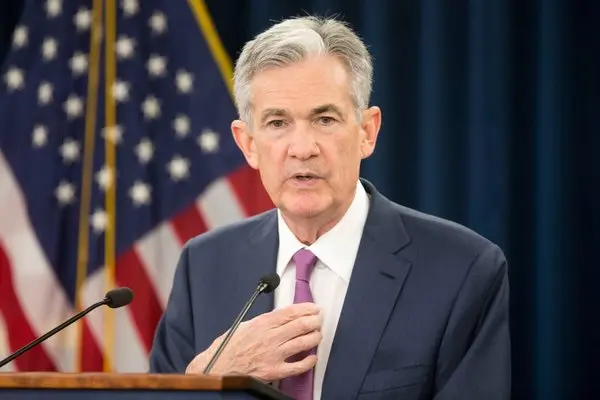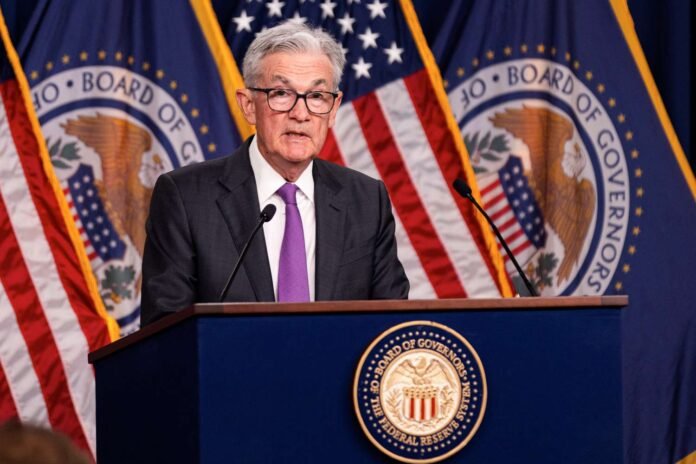In a pivotal moment for the global economy, the US Federal Reserve convened for a key meeting, casting a spotlight on Chairman Jerome Powell’s comments. The financial world held its collective breath as market participants eagerly awaited insights into the central bank’s stance on interest rates, particularly amid growing expectations of a rate cut in 2024.
The Federal Reserve, entrusted with the delicate task of steering the United States’ monetary policy, faced a backdrop of economic uncertainties. Inflationary pressures, supply chain disruptions, and the ongoing pandemic fallout added layers of complexity to the decision-making process.
Investors, analysts, and policymakers alike were keenly attuned to Powell’s every word, seeking clues that could shape their strategies in the months to come. Powell, known for his measured communication style, did not disappoint. He acknowledged the challenges facing the economy while hinting at the Federal Reserve’s commitment to navigating these turbulent waters.
The specter of inflation, a formidable force that had dominated headlines in recent months, drew particular attention. Powell acknowledged that inflation had exceeded the central bank’s target, but he emphasized the transitory nature of these price increases. The Chairman reassured the public that the Federal Reserve remained vigilant and prepared to act if inflationary pressures proved more persistent than anticipated.
Powell’s Reaction
As the meeting unfolded, the discussion shifted to the possibility of a rate cut in 2024. Powell’s comments on this matter were scrutinized for any indication of the central bank’s future policy direction. The Chairman acknowledged the market’s expectations but underscored the need for flexibility. He stated that the Federal Reserve would base its decisions on data and the evolving economic landscape.

Market reactions to Powell’s comments were swift and varied. Stocks experienced fluctuations as investors parsed the nuances of the Chairman’s statements. The bond market, a sensitive barometer of interest rate sentiment, also reflected the market’s response. The atmosphere was one of anticipation and cautious optimism, with market participants digesting the information provided by Powell.
The global economic landscape, intricately connected in an era of interdependence, watched the Federal Reserve’s every move. As the world grappled with the ongoing effects of the pandemic, the central bank’s decisions held implications far beyond U.S. borders. Powell acknowledged the interconnected nature of the global economy, emphasizing the importance of international cooperation in addressing shared challenges.

The meeting underscored the delicate balancing act the Federal Reserve faced—navigating inflationary pressures while fostering economic recovery. Powell’s adept handling of the nuanced questions from reporters reflected a leader acutely aware of the challenges at hand. He reiterated the central bank’s commitment to its dual mandate of maximum employment and stable prices, signaling a careful approach to policy adjustments.
As the press conference continued, Powell delved deeper into the employment situation, acknowledging progress but cautioning against premature celebration. He highlighted the need for sustained job growth and emphasized that the Federal Reserve would remain attuned to labor market dynamics when making policy decisions.
The issue of tapering asset purchases, another key concern for financial markets, surfaced during the Q&A session. Powell acknowledged ongoing discussions within the Federal Reserve about adjusting the pace of bond purchases but offered no definitive timeline. The Chairman reiterated the central bank’s commitment to providing ample notice before implementing any changes, reinforcing the importance of clear communication in minimizing market disruptions.
The global audience, including central bankers and policymakers from around the world, listened intently to Powell’s insights. His remarks on the interconnectedness of the global economy and the potential spillover effects of U.S. monetary policy resonated in international financial circles. Powell emphasized the Federal Reserve’s role as a responsible steward in the global economic system, recognizing the impact of its decisions on a broader scale.
Market analysts and economists immediately started dissecting Powell’s statements, publishing interpretations and forecasts. The consensus that emerged was one of cautious optimism, with many anticipating a measured and gradual approach to any future policy adjustments.
While acknowledging the challenges posed by inflation and the uncertainties surrounding the economy, Powell expressed confidence in the resilience of the U.S. financial system. He affirmed the Federal Reserve’s commitment to using its tools effectively to support the ongoing recovery while carefully monitoring inflationary developments.
In the aftermath of the key meeting, financial markets exhibited a degree of stability as participants digested the information provided. The nuanced nature of Powell’s comments allowed for a measured response, reflecting a market that appreciated the central bank’s transparent and communicative approach.

